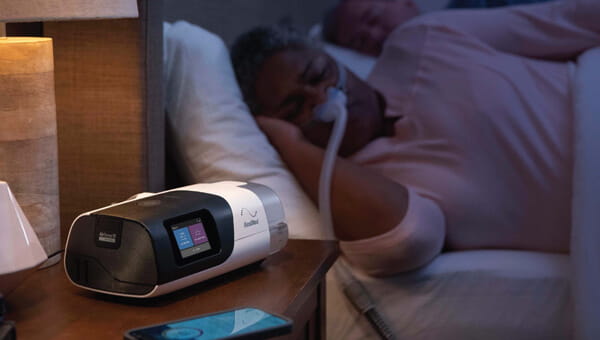Obesity is one of the primary risk factors for obstructive sleep apnea. The more fat tissue that surrounds the nasal airway, the higher the risk of total airway obstruction and collapse. The muscles that keep the airway open during wakefulness are relaxed and less effective during sleep, which explains why snoring or severe gasping during sleep are signs of sleep apnea.
This condition is more prevalent among men due to the fact that men tend to gain more weight around their abdomens and necks, whereas as women gain the most weight in their lower bodies. Studies have also shown that sleep apnea can actually lead to weight gain. Diminished sleep quality can cause decreased metabolism, increased appetite, lower energy levels, and less motivation to be active.
Treating Sleep Apnea with Weight Loss
People suffering from obstructive sleep apnea may see an improvement in their condition if they lose weight. Some individuals who are morbidly obese and struggling with severe sleep apnea may opt for weight loss surgery if the condition becomes life-threatening.
Nonsurgical treatment options include:
- Eating a healthier diet
- Getting regular exercise
- Beginning sleep apnea treatment
Sleep Apnea Treatment at BayCare
If you struggle with your weight and are experiencing sleep disruptions, talk to your physician about getting a referral for a sleep evaluation at a BayCare Sleep Disorders Center. We offer a variety of sleep disorder services throughout Tampa, Clearwater, St. Petersburg, Sarasota, Largo, Seminole, Safety Harbor, New Port Richey, and the surrounding areas. To learn more, call (866) 328-9932 or register for a sleep disorder class or event. Browse our other online resources that discuss Obstructive Sleep Apnea & Surgery and Obstructive Sleep Apnea & Obesity.




